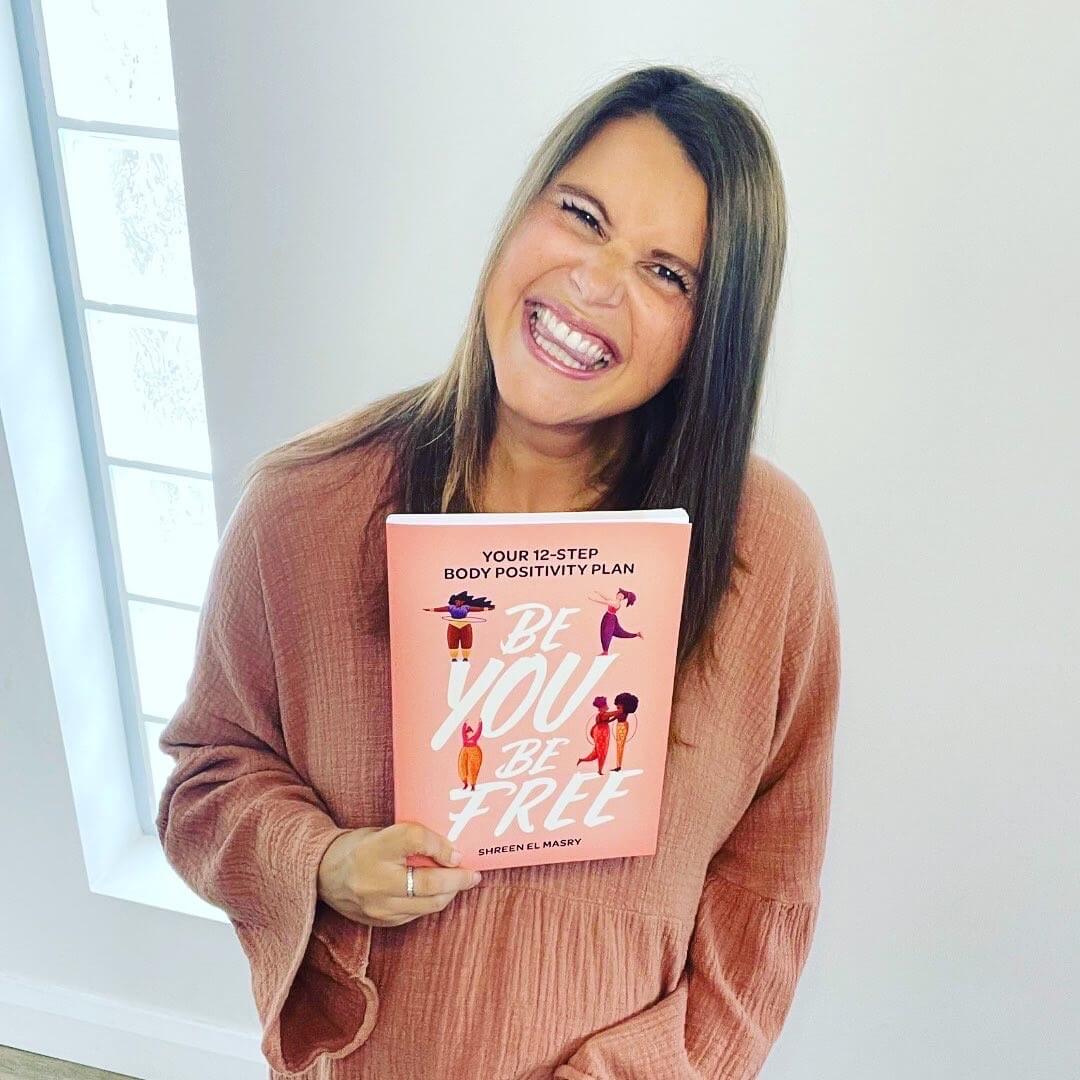An International Women’s Day Q&A
International Women’s Day is a day to celebrate ALL women and their leadership, their dedication and their rights to all equal areas of life. From decision making, equal pay, ending violence against women and girls, and ensuring equitable access to healthcare that responds to their needs, IWD is a global imitative to celebrate how far women have come, but also how far they still have to go to fight for an equal future, and an equal world.
Today on IWD, we’re acknowledging the United Nations global theme of “Women in leadership: Achieving an equal future in a COVID-19 world”, by celebrating and championing a number of women with the eating disorder, mental health and social justice spaces.
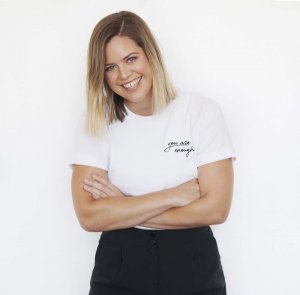
Sabine McKenzie
Sabine McKenzie (she/her) is an Eating Disorder Peer Mentor, Speaker and Body Image Educator. She is passionate about spreading a worth beyond image message within schools and community groups as well as using her credentials and experience as a physiotherapist to promote health beyond size to other fitness and health professionals. Taking a ‘big sister’ lived experience approach, she provides 1:1 recovery support through her business Core Confidence. She believes in and advocates for full recovery.
Q: What does International Women’s Day mean to you?
IWD to me first and foremost means a day to celebrate women. All women. Secondly it means continuing to raise awareness of and take action for gender equality which, it’s said, we won’t see in our lifetime. It gives us a day to reflect on how far we’ve come and, for me, get fired up for how far we still have to go.
Q: How can we encourage future women leaders, more generally, but also within the eating disorder space? What does an equal future world look like?
Having recently become a mother, I have personally come to understand the need for more accessible and available childcare (or assistance of family carers) as a way to encourage, support and make way for more future women leaders. Alongside this I would love to see more discussion and education around the true aims of positive body image; a shift in the societal view (including from women) from bodies first and people second, to people first and bodies…later. Whilst I understand the importance of celebrating our bodies, promoting self love and showing off all our angles, even the “perceived flaws” – the next step is to realise we are so much more than our angles, bodies and so-called “flaws”. Solidifying our worth beyond image so we can get on to do what’s important in this world and lead. An equal future world looks like equal pay, equal expectations, equal opportunity and an end to violence against women.
Q: What is a highlight of your career?
Every time I hear of a person seeking out support after they hear me share my story – HIGHLIGHT. Or when I hear from people I supported or have spoken to that they’ve recovered or parents telling me they “have their child back” – HIGHLIGHTS. I think because I have that experience of how difficult it can be to step up and say “something’s not right” or “I’m tired of this” and seek help when you don’t feel as if you’re sick or “sick enough”. As well as the understanding of how tough that battle is to come out on top and how brave you have to be throughout the recovery process to keep going. There is so much respect, admiration and always a massive fist pump. There is nothing better and the reason why I keep pushing forward in this career.
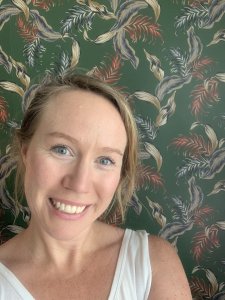
Dr. Zali Yager
Dr Zali Yager is an Associate Professor in the Institute for Health and Sport at Victoria University, co-founder and CEO of @Bodyconfidentcollective, and a maternal mental health advocate @drzaliyager @bodyconfidentmums.
Q: What does International Women’s Day mean to you?
For me it’s a motivator for women to come together around the world and celebrate our achievements, share our stories, and plan the journey ahead. On IWD I love to be inspired by amazing female leaders, and reflect on my own leadership path, as well as mentoring the future female leaders in this field.
Q: What is a highlight of your career?
I’ve been lucky enough to collaborate with amazing researchers, and speak about my research in many amazing places around the world, but the highlight most recently is being named as a Westpac 2021 Social Change Fellow for my work at the Body Confident Collective.
Q: How has COVID-19 impacted women within the eating disorder/body image/mental health profession?
As a mother and maternal mental health advocate, I can attest to the fact that Mums have been hit hard over the past 12 months! Within the research field this was evidenced in the huge drop in research papers submitted by female academics, and more broadly, anxiety and depression in mothers has increased significantly over the past year.
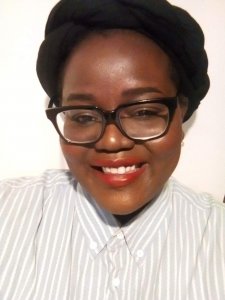 Nyibeny Naam
Nyibeny Naam
Nyibeny Naam is the secretary of Corona Support for Africa, a newly established community organisation that aims to mitigate the spread of COVID19 in African communities, domestically and on the continent. She is a passionate researcher, human rights, and community advocate.
Nyibeny holds a degree in Social Science, majoring in Politics and International Relations, and a Master’s in International Law. Her areas of research include the intersections of race, gender, and international law.
Q: What does International Women’s Day mean to you?
International Women’s Day is a time to reflect on the vast contributions women have made in our societies and to recognise these achievements. It’s a chance to highlight the progress made, as well as to acknowledge the work that remains to be done.
There is a large disparity between the lives of women in the global north and the global south. Particularly in the areas of security, human rights, access to basic needs, opportunity, and justice. International Women’s day is a reminder that we all must continue to fight to address these disparities; and the economic, social and political barriers women face everywhere.
Q: How can we encourage future women leaders? What does an equal future world look like?
The Covid19 pandemic, as with most major historical upheavals, has the potential to disrupt and reshape some of our biased assumptions about gender. Women, world leaders, healthcare workers, activists, and ordinary citizens alike, have proven that we are integral to the efforts to combat this pandemic. Despite innumerable barriers, time and time again, women have risen to the occasion as leaders and shaped our world into a more secure, healthier, and equitable place.
Worldwide, women make up a disproportionate segment of the caregiving sector meaning they are both the last line of defence for many nations and the most at risk of infection. This dynamic, where women bear the burden of labour and impact, is not new. It applies to nearly all the economic, social, political, and scientific challenges we’ve faced in the past and the current global context.
To encourage future women leaders, we must challenge the barriers that continue to relegate women as secondary participants in local, national, and international policy. We have to dismantle this notion that women have anything to prove regarding our capacity to lead, this has already been demonstrated. To encourage and support future leaders, we need to address seriously the persistent institutional and systemic exclusion of women from decision-making roles at all levels of society.
An equal future world, to me, is a world where we acknowledge historical inequities openly and honestly, acknowledge the ongoing impact of structural inequalities; and allow marginalised groups to exercise their right to determine their futures. In short, an equal world is an intersectional world with justice and inclusion at its core.
Q: How has COVID-19 impacted women in regards to eating disorders that you have noticed within your industry?
There is an unspoken burden on CALD individuals to respond to all racist claims and policies directed at our communities. This takes a huge emotional toll and erodes a sense of belonging. There is a pressure to assimilate, even if that’s no longer the official national policy. One of these pressures is exemplified by a push to embody a Eurocentric beauty aesthetic, particularly in body type.
As an African-Australian woman, two recent examples in the mainstream media that demonstrate the portrayal of African/black women stand out: The racist depiction of Serena Williams’ body, by Cartoonist Mark Knight (2019), and the fixation on the looks of two young African-Australian women, who breached COVID19 domestic travel restrictions (2020). Black women have said felt judged for having more muscular builds, reminiscent of the indomitable Serena Williams and for not embodying the lean/thin body build, even when they are perfectly healthy.
Without belabouring the point, there are far too few positive portrayals of black women’s bodies in Australian media. As a community worker, I’ve discussed these pressures both privately and in public forums. What’s emerged is a troubling picture that, African women feeling that they have to attain a certain body type before they’re accepted in general society and certain fields. Common refrains are about being thin but not muscular, fair-skinned, and having straight hair. Out of these, being thin or becoming thin seems to be the most attainable. This pressure has led women to severely restrict calories, overexercise, purge, or a combination of all the above.
On the flipside, in African Communities the term “eating disorders” seems culturally alien i.e. This is a seen as white women’s issue. This, of course, isn’t true. There is a growing call for culturally appropriate services, to tackle this emergent and often hidden issue in African and other CALD communities.
Q: What is a highlight of your career?
A highlight of my career is the recent publication (2021) of an article I co-authored on the Women, Peace, and Security Agenda (The Social Life of the Women, Peace and Security Agenda: A Digital Social Network Analysis, Global Society – C.Hamilton, J.Mcswiney, N. Naam, L.J Shepherd).
As an early career academic, this means a great deal to me. More specifically, as a woman of colour, this achievement is something that demonstrates that my contributions to academia are important and valid. It makes me optimistic about the future of other young women with a similar background and lived experience.
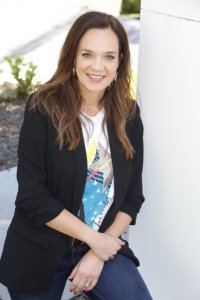 Candice Bailey
Candice Bailey
Candice is a Counsellor at the Butterfly Foundation, and is passionate about promoting positive body image in the community. She is also the founder of Belle Heart Counselling, a private practice dedicated to helping women to navigate the challenges of life. Prior to starting her journey as a counsellor, Candice worked in PR and Communications in Sydney and London. Her favourite role was working for Burger King, where tasting the products was part of the job.
Q: What does International Women’s Day mean to you?
I think it reminds me that it would be great if every day felt like a day to celebrate women, particularly all the special women in my life who support me, challenge me and make me laugh. Women can play so many roles and feel like we have to be a master at all of them. It’s OK to just do your best. That’s enough.
Q: How can we encourage future women leaders, more generally, but also within the eating disorder space? What does an equal future world look like?
By empowering women to feel capable and confident to make their own choices. Regardless of industry, sometimes women are limited in leading by what they perceive to be the ‘expectation’ of what they should do. It can be daunting, but so very rewarding to take some risks and see where it takes us.
Q: How has COVID-19 impacted women within the eating disorder profession?
Providing support to individuals impacted by eating disorders, I have become more aware of how COVID-19 has increased feelings of isolation amongst many people who were already feeling alone. There is a real sense that this unpredictable future and lack of control has unsettled a lot of people and motivated them to reach out for help. This has reinforced for me the importance of connection and keeping conversations going with those around us. We don’t have to completely understand what someone is going through, but we can try and hear where they are at and just be there to listen.
Q: What is a highlight of your career?
Finding the courage to recognise that it was OK to change careers and retrain to become a counsellor. After many years working in communications, and taking time out to have a family, I knew I was ready for a new career challenge, but was not sure what that would look like. Today, working as a counsellor, I feel great responsibility and humility when someone opens up to me, often a complete stranger, and shares their story. I consider myself very fortunate to be doing this type of work.
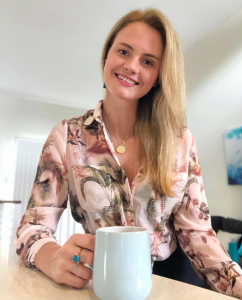 Mia Findlay
Mia Findlay
Mia Findlay is the founder of Beyond Body and works as an eating disorder recovery coach. She has been advocating in the field of eating disorders for more than seven years and has been a proud ambassador for The Butterfly Foundation since 2018.
Q: The 2021 IWD theme is “Women in leadership: Achieving an equal future in a COVID-19 world.” How can we encourage future women leaders, more generally, but also within the eating disorder space? What does an equal future world look like?
We’ve seen very clearly in recent years why seeing all kinds of women being represented publicly is so important within the eating disorder space and more generally in society, that’s undeniable. What is only recently being acknowledged is that we need more women behind the scenes in positions of influence and power at every possible level; within politics, media, social media companies, foundations, education etc. Having women at the table when the big decisions are made is the next crucial step, so that we are ensuring our stories are being told accurately and that we are meeting the needs of as many various and marginalised groups as possible. That’s equality; representation, power and input at every single level, not solely in a public facing capacity.
Q: How has COVID-19 impacted women within the eating disorder profession?
The last twelve months has been so immensely challenging for absolutely everyone in this very new and often overwhelming world we live in. For those dealing with eating disorders, this makes staying motivated even more difficult. It is part of my job to keep my clients and community hopeful, to buoy them with what is possible without an eating disorder. That’s a little more difficult to do when the world feels a little darker and uncertain for all of us, so the pressure to keep people afloat has definitely increased. The answer here is ironically to not pretend that you have all the answers and to validate how they are feeling, whilst providing as much light on the horizon as you can. Recovery is always worth it, even in the midst of a global pandemic. Arguably, it is even more worth it!
Q: What is a highlight of your career?
Without a doubt, the biggest gift of this work is hearing from former clients who now consider themselves recovered and free from their eating disorder. In January 2021 alone, I heard from three former clients who are recovered and pregnant. It is an enormous privilege to walk alongside clients as they battle through recovery. Being able to celebrate with them on the other side is a feeling I can’t describe.
Q: What does International Women’s Day mean to you?
International Women’s Day is a celebration of all the indelible and extraordinary achievements, progress and feats which women have been, and are, capable of. It is also an acknowledgement that we still have battles to be fought, people to be reached and even more to achieve.



















